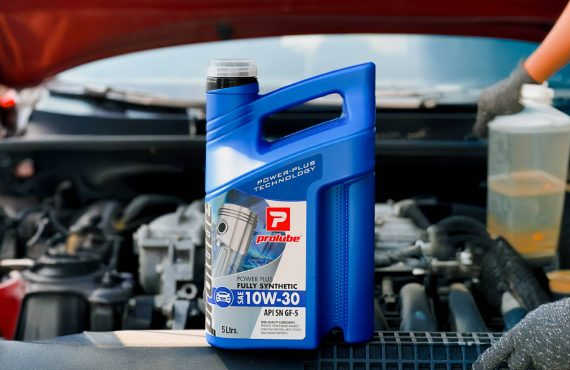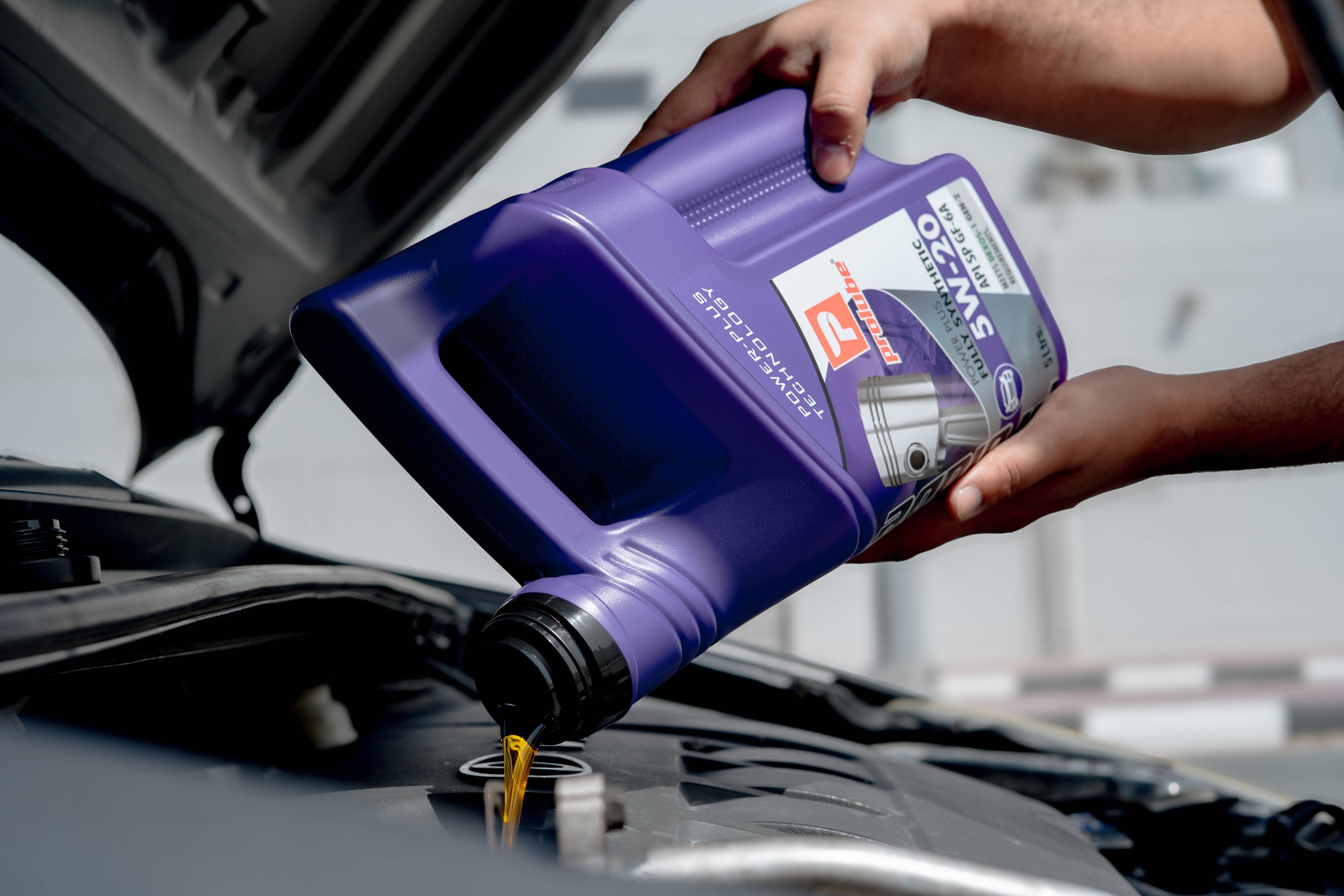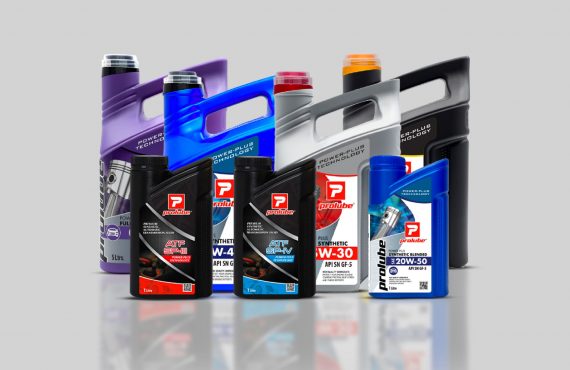If you’ve been using conventional motor oil for any time, consider switching to synthetic engine oil. Many drivers are hesitant to switch because they have heard about compatibility issues, performance issues, and prices that are not true. This guide to conventional versus synthetic oil will discuss whether you can switch to synthetic oil, some benefits, and best practices to consider.
Difference in Conventional vs. Synthetic Engine Oil
Before determining if you want to switch, it is essential to understand the difference between conventional and synthetic oil:
Conventional Oil: As the name suggests, this oil comes from refined crude oil and contains natural impurities that can impact engine performance over time. It should be changed periodically and tends to break down more quickly in extreme temperatures.
Synthetic Oil: Synthetic oil is formulated with chemicals made up of synthetic molecules. It can offer better performance, longevity, and high-temperature resistance. It also offers improved lubrication and protection for modern engines.
Is It Safe to Switch from Conventional to Synthetic Engine Oil?
In short, the answer is yes! Modern engines are meant to use either type of oil, and you will not damage your engine by switching from conventional to synthetic. Here is why:
No Damage to Engine Seals: There is a lot of erroneous information about synthetic oil out there that is contributing to leaks. The fact of the matter is that synthetic oil works with all modern gaskets and seals. If your engine seals are leaking, switching to synthetic oil isn’t going to cause leaks; you are just realizing they are leaking now since synthetic oil acts as an excellent fluid.
Improved Engine Performance: Synthetic oil decreases or protects ties and decreases or protects engine components from wear.
Mixing Oils is Safe: If you are concerned about not having drained all of the conventional oil from your engine, don’t be concerned! Synthetic and conventional oils can mix safely, but an oil change is always the ideal policy.
Advantages of Moving to Synthetic Engine Oil
Moving from conventional oil to synthetic Prolube engine oil has multiple benefits:
Additional Engine Protection
- Synthetic oil has an inherent ability to form a thicker film than standard oil.
- When thicker oil offers reduced friction, it equals less wear.
- Synthetic oils will also produce less sludge inside the engine, which will aid in better running efficiencies.
Better Performance in Extremely Hot and Cold Weather
- These oils are less prone to thickening in cold weather, so your car should start more easily in winter.
- Synthetic oil also works better in hotter temps than other oils, again lessening oxidation and thermal breakdown.
Fuel Economy
- Prolube engine oils will reduce friction, allowing the engine to run smoother and producing better fuel economy (MPG).
Increased Engine Longevity
- Synthetic oils help reduce wear and tear, prolonging the life of your engine. This is beneficial for older, high-mileage vehicles.
How to Switch from Conventional to Synthetic Oil?
Transitioning to synthetic engine oil is simple. Following these procedures will make the transition as smooth as possible.
Check Your Vehicle’s Manual
Most vehicles manufactured today can handle synthetic oil. If your vehicle manufacturer recommends it, follow their advice.
Choose the Right Synthetic Oil
Synthetic oil that is API-certified will meet your engine’s specifications. If the brand has a high-performance engine oil formula, look at that brand as well.
Perform an Engine Flush
If your engine tends to sludge up, consider doing an engine flush to remove the deposits before the switch. Speak to a professional before you publish, as it may not matter to all vehicles. It is helpful to drain the old conventional oil completely.
Do a Complete Oil Change?
Also, replace the oil filter so the lubrication fluid is completely clean for the transition. Add the amount of synthetic oil recommended for your vehicle.
Monitor Performance
After the transition, remember to pay attention to how the vehicle’s performance may change. You may get better acceleration, or the car sounds quieter. Also, check to ensure that oil levels are maintained without leaks.
Common Myths About Switching to Synthetic Oil
There are various myths regarding synthetic oil. Here are a few of the big ones:
Synthetic Oil Causes Leaks
Synthetic oil will not cause leaks in your engine if it is in good working condition. It simply flows better than conventional oil and makes the leak more apparent.
You Can’t Switch Back to Conventional Oil
While synthetic oil is superior, you can always switch back to conventional oil. However, most drivers who switch end up sticking with synthetic rather than switching back.
Synthetic Oil is Only for New Vehicles
Vehicles Synthetic oil is valuable for both new and older vehicles. High-mileage lubricant oils are also available for older engines.
Synthetic Oil is Too Expensive
Even though synthetic oil is a bit pricier to start, its extended change intervals and protection at each change make it a great value.
Will Synthetic Oil Benefit Your Vehicle?
If you want to switch to synthetic, ask yourself the following questions:
Are you driving in extreme temperatures? Synthetic oil typically will perform better both in hot and cold temperatures.
Would you like to visit the oil change shop less frequently? Synthetic oil is a good option if so.
Do you have an older high-mileage vehicle? Again, if so, high-mileage synthetic oil could provide extra protection against wear and performance loss.
To Sum Up All
Choosing synthetic oil over regular oil yields several advantages, including better engine performance, fuel economy, engine life, and longer intervals between oil changes. Whether you want to negate the impacts of extreme weather, prolong the life of your engine for your next vehicle purchase, or just not have to visit the oil lube store as often, synthetic oil is worth the cost.
Pro-Lube provides better synthetic oils that will help ensure your engine’s performance at its best! Contact our experts on our website or visit us today if you have questions about switching to synthetic oil!





No comments yet.